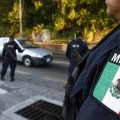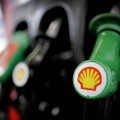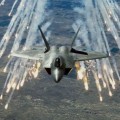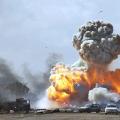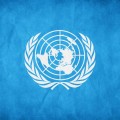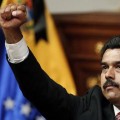The Museum of Archeology of Great Britain has received a priceless treasure - part of a small tablet made of wax, where the capital of Britain is mentioned. According to the historians' assumption - the tablet was something like a postal address and belonged to someone from the Romans. The document was dated by scientists from 65 to 85 years AD. This is the oldest written mentioning of London. Earlier it was 117 AD, and the record, where it was written about London, was made by the famous Roman historian Tacitus.
In 1927, the state of Honduras, located in Central America, was under British rule. At this time, the British organized a scientific archeological expedition to the ruins of the ancient city of Maya civilization Lubaantun. The result did not keep itself waiting. Scientists have discovered an incredible, fantastic object - a polished human skull made of fine crystal.
Are you tired of the routine of your life, and you want to embellish it by moving to another country? Our desires are endless and not always we can afford anything we want. However, many do not realize that there are countries in which life is not a multi-million dollar luxury, and the benefits received abroad are quite suitable for our pocket expenses, including the purchase of housing.
An increase in homicides that could make 2017 one of Mexico’s most violent years on record has done little to deter visitors from the United States although Canadian figures have shown a decline.
Federal government statistics show that tourist numbers have continued to grow despite rising insecurity that last week triggered a new travel warning for Mexico by the United States Department of State.
Mexico is the worst country in Latin America for impunity, according to a study by the Universidad de las Américas Puebla (University of the Americas in Puebla, or UDLAP).
Mexico topped the Global Impunity Index for Latin America and was the fourth worst country among the 69 that were analyzed worldwide.
The index measures systems of security, justice and the protection of human rights and structural capacity to come up with its numbers.
Teenage drug use has doubled in Mexico in five years, but among teenage girls it has soared 205%.
The number of youths aged 12 to 17 that have used illegal drugs increased from just under 3% in 2011 to just over 6% last year.
Mexican scientists and researchers are forced to seek employment and career development abroad due to a lack of infrastructure and resources as well as government corruption that prevent them from advancing in their work, say Mexican academics based in the United States.
Almost everyone knows about United States and Canadian investment in Mexico thanks to the ample information provided regarding the North American Free Trade Agreement. But how many people are aware of Dutch investment in Mexico? Not many, probably.
Argentina is an economically ambiguous republic, having experienced several ups and downs in the past century. This large state in the early XX century was one of the richest in Latin America, but due to inept policy of the authorities, it twice was on the verge of default and entered the list of third countries of the world. In 2015 Mauricio Macri was elected as the president, who in a short time was able to double the foreign exchange reserves of Argentina.
Pearsl are favorite jewelry and symbol of the East. They are considered the personification of purity and innocence, as well as a pledge of matrimonial fidelity and love.
Indian sorcerers claim that the pearl contains three main elements: Air, Earth and Water. In their opinion, this explains its calming effect. In addition, it has the property of increasing vitality, health and strength. Pearls are mined in warm seas off the coasts of Japan, Australia, Latin America and India.
More than three million Venezuelans have signed up against a decree of the President of the United States (US), Barack Obama, which sees Venezuela as "a threat," said leader of the United Socialist Party of Venezuela (PSUV) and mayor of the Libertador municipality of Caracas Jorge Rodriguez.
The US Treasury Department on Tuesday excluded many people and companies linked to Cuba from its list of sanctions, as part of the process of rapprochement initiated by the United States and Cuba after half a century of isolation.
In a brief statement, the Office of Foreign Assets Control (OFAC) of the Treasury reported that from the sanctions list 6 persons, 28 companies and 11 naval vessels have been removed, including vessels operating under Cypriot flag.
Not exactly known for truthfulness, U.S. neocons have been trying to reassure the American people that sinking a negotiated deal with Iran to limit its nuclear program would be a painless proposition, but at least one prominent neocon, Joshua Muravchik, acknowledges that the alternative will be war – and he likes the idea.
A British woman who was expelled from Turkey for allegedly wanting to join jihadist ranks in Syria was arrested on Thursday on her return to London, police reported.
The woman of 21 years ''was arrested on entering the UK after a flight from Istanbul has landed,'' the police said in a statement.
She is suspected of 'preparing terrorist acts,' police said.
Turkey expelled the woman, who was arrested Monday at a bus station in Ankara.
The language is white hot. Israeli Prime Minister Binyamin Netanyahu tells the US Congress to reject any deal with Iran. The red line for him has been crossed a long time ago – namely, when Iran began to enrich uranium. What Netanyahu wants is to end Iran’s nuclear program. What ambiguity lies between the civilian and military program must not be considered – none of it should be allowed.
Violence in Libya has multiplied and, if its leaders will not act quickly, the risk that the country disintegrates is real and imminent, the special representative of the UN Bernardino León warned today.
In a videoconference report to the Security Council, Leon said that "unless Libyan leaders act quickly and decisively, risks to national unity and territorial integrity of the country are real and imminent".
Central America is not a major drug transit route, but a victim of violence and corruption that it generates. It also sees increased production and consumption of prohibited substances, according to a report published today by the UN.
"Security problems related to drug business, including high levels of violence, money laundering, corruption and other illegal activities, are issues which pressing the countries of Central America and Caribbean," says the INCB a autonomous body within the UN system.
President Nicolas Maduro denounced, that his opponents, with US support, are trying to infiltrate Colombian paramilitaries to generate violence and chaos in Venezuela.
On national radio and television Maduro called the people, the military and police forces to be vigilant and to prevent an armed attack from Colombian infiltrated paramilitary forces in Zulia, Tachira and Apure.
On September 11, 2013, hundreds of thousands of Chileans solemnly marked the 40th anniversary of their nation’s 9/11 terrorist event. It was on that date in 1973 that the Chilean military, armed with a generous supply of funds and weapons from the United States, and assisted by the CIA and other operatives, overthrew the democratically-elected government of the moderate socialist Salvador Allende.
The news that the U.S. Central Intelligence Agency carried out a meticulously planned terrorist car bombing in Damascus, Syria, in February 2008 appeared on the front page of the Jan. 31, 2015, Washington Post. It was an outrageous action in the capital of a sovereign state. By all definitions, a state-sponsored car bombing in the capital city of another nation is defined as terrorism.




